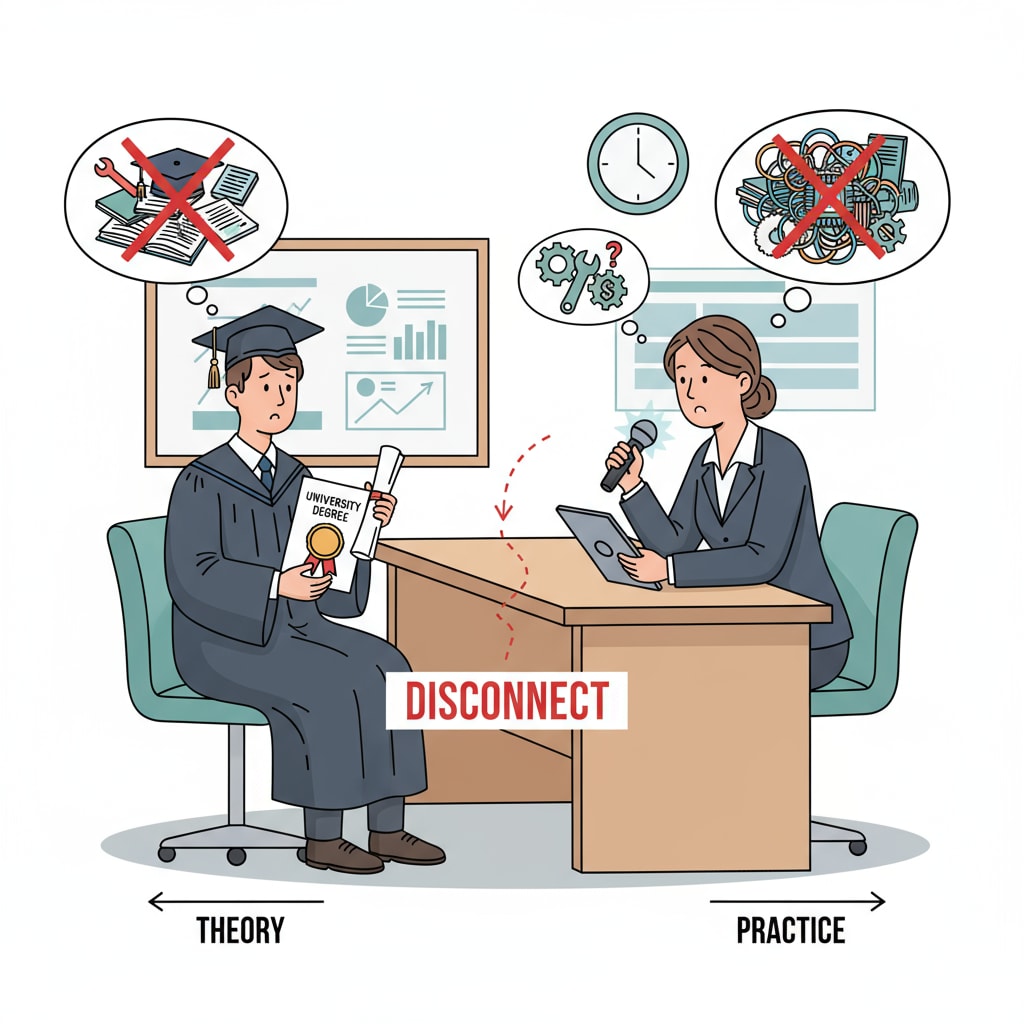University grades, employment, and graduation are intertwined aspects that shape a student’s future. For a long time, there has been an assumption that high grades in university guarantee a smooth transition to a successful career. However, is this really the case? Let’s take a closer look.

The Traditional Belief: High Grades Equal High Employability
For years, the education system has instilled in students the idea that academic success, measured by high grades, is the key to a prosperous career. Parents, teachers, and society at large often emphasize the importance of getting good grades. It is believed that a high GPA (Grade Point Average) will open doors to top companies and high-paying jobs. But this may be a simplistic view. As Britannica states, education encompasses more than just academic achievements.
The Disconnect Between Education and the Job Market
Today’s job market demands a diverse set of skills that go beyond what is taught in the classroom. Employers are looking for candidates with practical skills, problem-solving abilities, communication skills, and teamwork experience. However, the university education system often focuses primarily on theoretical knowledge and exam performance. This creates a gap between what students learn in university and what employers expect. For example, many graduates with excellent grades struggle to apply their knowledge in real-world work situations.

Moreover, the rapid pace of technological change and industry evolution means that the skills needed in the job market are constantly changing. University curricula may not always keep up with these changes. As a result, students may graduate with knowledge that is already outdated in the workplace.
Rethinking Academic Achievement and Workplace Competence
It’s time for educators and students to reevaluate the balance between academic achievement and workplace competitiveness. Instead of solely focusing on grades, universities should incorporate more practical elements into their curricula. This could include internships, project-based learning, and industry collaborations. By doing so, students will gain valuable hands-on experience and develop the skills that employers are seeking.
Students, on the other hand, should also take the initiative to enhance their non-academic skills. This can be achieved through extracurricular activities, volunteer work, and joining student organizations. These experiences not only help in building important skills but also demonstrate a well-rounded personality to potential employers.
In conclusion, while university grades still hold some significance in the job search process, they are far from being the sole determinant of employment success. The relationship between university grades, employment, and graduation is more complex than the traditional view suggests. We need to look beyond the成绩单 (transcript) and recognize the importance of a holistic approach to education and career development. As we move forward, both educators and students should strive to bridge the gap between academia and the job market to ensure a more successful transition from university to the workplace. Wikipedia’s page on education offers more insights into this complex relationship.
Readability guidance: The article uses short paragraphs to present ideas clearly. Each H2 section has a focused discussion. Passive voice is minimized, and transition words like “however”, “for example”, and “moreover” are used to connect ideas smoothly. Lists are used where appropriate to summarize key points.


